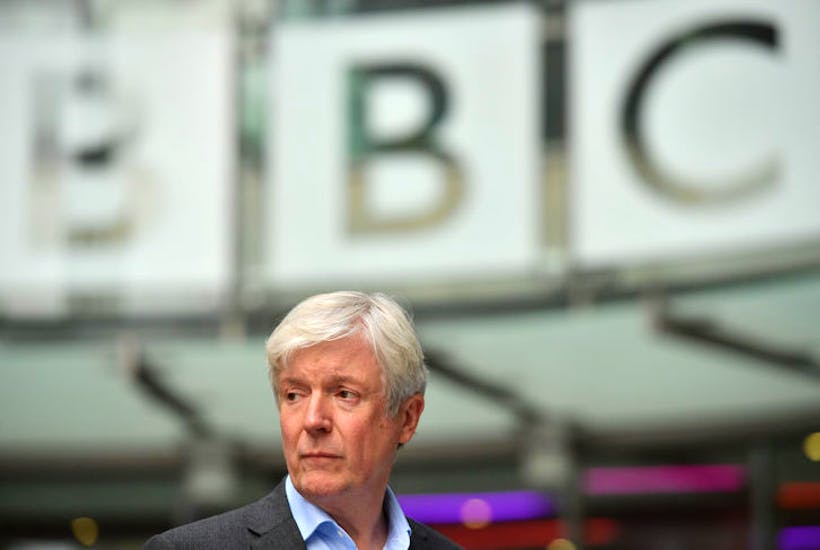There is one qualification which ought to be vital for Tony Hall’s replacement as director-general of the BBC, but you can bet your bottom dollar that the BBC Board, which is charged with making the appointment, will regard it instead as a disqualification. The new director-general needs to accept that the licence fee will disappear when the BBC’s charter next comes up for renewal in seven years’ time and commit to preparing for a fully-commercial future.
But don’t hold your breath. It is a racing certainty that we will end up with the opposite: someone who will plead to the government how essential it is that we continue to have a BBC funded by the hypothecated tax that is the licence fee and will bleat all day long about what a tragedy it would be if the BBC had to sully itself with commerce. It would be a tragedy for the likes of Sarah Montague, perhaps, who has just revealed she was bunged £400,000 to settle her complaint that she wasn’t paid as much as John Humphrys when both presented the Today programme. Radio presenters, in particular, might just struggle to negotiate fat pay deals in a commercial environment.
But in won’t be a tragedy for the increasing number of people who are opting not to own a television and so are not paying the licence fee. Tony Hall will no doubt rate his greatest achievements as Bodyguard, Blue Planet and the like. But what really stands out from his eight years at the top is that he is the first director-general to have presided over a fall in the yearly sale of licences – which dropped by 37,000 last year. That might sound modest, given that 25 million households did buy a licence, but it is a snowball that threatens very quickly to turn into an avalanche. If you are young, constantly flitting between rented flats, and you are used to accessing all the entertainment you need on your phone or laptop, either for free on YouTube or through subscriptions to the stuff you really want to watch on Netflix etc, why would you want to pay a property-based tax to own a television?
The licence fee is doomed whether or not the government decides to abolish it. For the BBC the choice lies between trying to live on a steadily-waning income or to embrace the methods by which other media organisations monetise their product: through subscription, advertising or some other means. The faster the BBC comes round to realising this and appoints a commercially-minded DG the better. But I fear that instead we will end up with an underemployed Corbynite (maybe Seumas Milne, whose father did the job in the 1980s) who wants to shut off the BBC and run it even more like the Soviets ran Pravda.







Comments